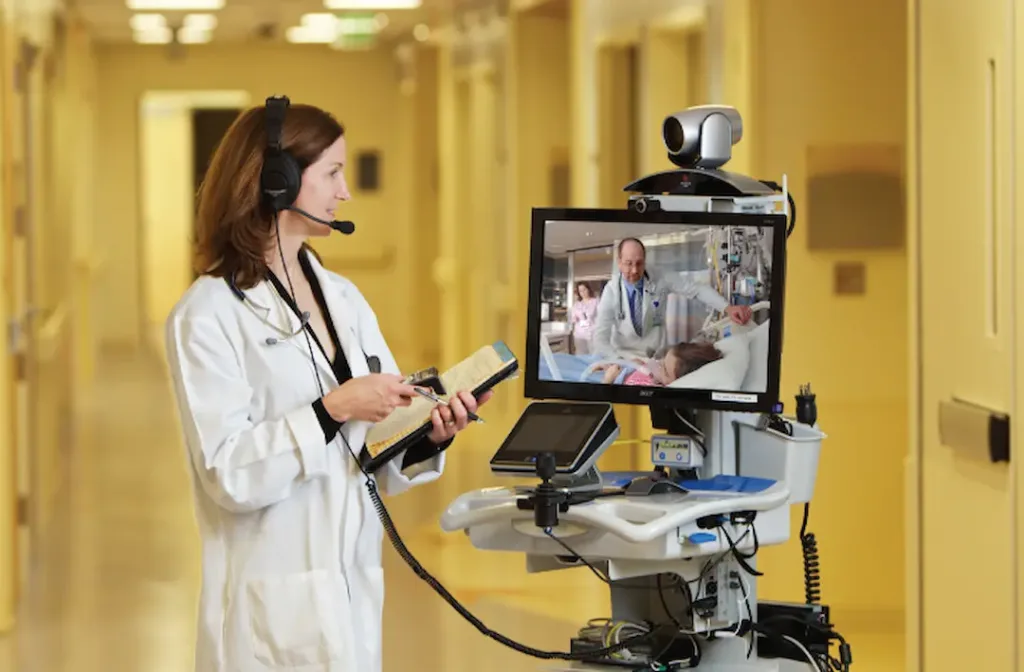
Meditation through Meditation App
Introduction
In 2024, health and wellness are no longer viewed as a mere trend but as a necessary lifestyle commitment for individuals seeking a balanced and fulfilled life. Technological advancements, increased mental health awareness, and a growing focus on preventive care are driving this transformation. This year, health and wellness intersect with personal well-being and technological innovation. The landscape has evolved significantly, from AI-driven health solutions to personalised wellness plans, offering people unprecedented control over their health.
This blog post explores the key trends in health and wellness in 2024, highlighting the role of technology, mental health awareness, physical fitness, nutrition, preventive healthcare, and the future of holistic well-being.
The Role of Technology in Health and Wellness
Moreover, technology has become essential in transforming health and wellness practices. In 2024, wearables, AI-powered health applications, and telemedicine are at the forefront of this revolution.

A fitness trainer using AI-powered tools
Wearable devices such as Fitbit, Apple Watch, and Garmin have evolved beyond fitness tracking. These devices now measure critical health indicators like blood oxygen, ECG, and stress levels and even detect irregular heart rhythms. They track steps and calories, monitor sleep patterns, and provide insights into overall well-being. Advanced models can offer stress-relief tips and mindfulness practices to improve emotional health.
In addition to wearables, AI-driven health apps have gained popularity in managing everyday health tasks. For example, apps like MyFitnessPal help users track their diet and fitness. At the same time, Noom focuses on the psychology of weight loss, providing personalised coaching to help users achieve long-term health goals.
One of the most transformative aspects of health technology in 2024 is telemedicine. Platforms like Teladoc and Doctor on Demand offer remote consultations with healthcare professionals, allowing patients to receive medical advice without leaving their homes. This has increased accessibility to healthcare, particularly for those in rural or underserved areas. Telemedicine services now offer everything from virtual urgent care to ongoing mental health therapy sessions.
Mental Health and the Rise of Mindfulness Practices
Similarly, mental health will take centre stage in the health and wellness industry in 2024, with increasing awareness of its critical role in overall well-being. The stigma surrounding mental health issues is gradually becoming insensitive as society embraces the importance of emotional wellness.
The rise of mindfulness practices such as meditation and yoga reflects a shift towards mental health maintenance. Mindfulness apps like Headspace, Calm, and Insight Timer offer guided meditations, breathing exercises, and tools to help users manage stress, anxiety, and depression.
Companies implement mental health days in the workplace to allow employees to focus on their emotional well-being. Many organisations have also embraced employee wellness programs, including mental health counselling and stress-relief activities.
AI-powered mental health tools are emerging as a valuable asset in this space. Platforms like Woebot, an AI-powered chatbot, offer evidence-based cognitive behavioural therapy (CBT) techniques to help users manage mental health challenges. These tools provide immediate, accessible mental health support, breaking down barriers to traditional therapy services.
The emphasis on emotional well-being has led to more holistic approaches to health, where physical, mental, and emotional health are interconnected components of wellness.
Personalised Fitness and AI-Driven Training
Furthermore, 2024 has significantly shifted towards personalised fitness solutions driven by AI technology and data analytics. The one-size-fits-all approach to fitness is being replaced by individualised workout plans that cater to specific goals, body types, and health conditions.
AI-powered apps like Fitbod and Future use machine learning algorithms to analyse user data and create tailored workout plans. These platforms consider user preferences, fitness levels, and available equipment, optimising each workout for maximum results. In addition, AI adjusts the program based on user feedback and progress, offering a dynamic, ever-evolving fitness regimen.
Wearable fitness technology, such as the Oura Ring and Garmin watches, provides real-time data on activity levels, sleep patterns, heart rate, and recovery times. These devices help users track their progress, monitor key health metrics, and receive actionable insights to improve their fitness routines.
Virtual fitness communities have also become a significant aspect of the fitness experience. Platforms like Strava and Nike Run Club allow users to share their progress, participate in challenges, and engage with others, creating a sense of camaraderie and accountability. This social element has been proven to enhance motivation and long-term commitment to fitness goals.
The rise of virtual personal training has made expert fitness guidance more accessible. Services like Peloton and Mirror offer live and on-demand workout classes, ranging from cycling to yoga, with expert trainers guiding users through every move.
Nutrition and Personalised Wellness Plans
In addition, personalised nutrition has become a cornerstone of health and wellness in 2024. Gone are the days of generic diet plans; individuals now have access to customised wellness plans tailored to their specific health needs and goals.
AI-powered nutrition apps like Lifesum and MyFitnessPal analyse users’ dietary habits and recommend personalised meal plans to help them achieve their health objectives. These apps take into account various factors such as age, gender, activity level, and food preferences, ensuring that users receive nutrition plans that are both effective and enjoyable.
Moreover, genetic testing services like 23andMe and DNAfit provide insights into how an individual’s genetics may impact their response to certain foods and diets. This allows for even more personalised nutrition guidance, helping individuals make informed decisions about their diet based on their genetic predispositions.
Meal delivery services like Blue Apron and HelloFresh offer another level of convenience, providing pre-portioned ingredients and recipes tailored to users’ dietary needs. These services make it easier to maintain healthy eating habits by eliminating the hassle of meal planning and grocery shopping.
The growing interest in plant-based diets and sustainable eating is another key trend in 2024. Many consumers are adopting vegetarian or vegan diets not only for health reasons but also for their environmental impact. As a result, plant-based food options are becoming more widely available, with companies like Beyond Meat and Impossible Foods leading the charge in creating delicious, sustainable alternatives to traditional meat products.
Preventive Healthcare and Wellness
Moreover, preventive healthcare is now a significant focus in the health and wellness landscape. The adage “prevention is better than cure” has never been more relevant, as people increasingly turn to preventive health measures to maintain their well-being.
Wearable devices and AI-powered health apps are making tracking potential health risks and detecting early signs of illness easier. For example, Apple’s ECG feature on the Apple Watch can detect abnormal heart rhythms, potentially identifying serious conditions like atrial fibrillation before they become life-threatening.
Genetic testing kits like those from 23andMe and AncestryDNA provide valuable insights into potential health risks based on an individual’s genetic makeup. Users can proactively mitigate these risks through lifestyle changes or regular check-ups with this information.
AI-driven diagnostic tools are also making waves in preventive healthcare. Companies like Zebra Medical and Butterfly Network have developed AI-powered imaging technologies to analyse medical scans for early signs of diseases like cancer and cardiovascular conditions. These tools enable healthcare providers to make more accurate diagnoses, ultimately improving patient outcomes.
In addition to these advancements, corporate wellness programs incorporate preventive care. Many companies provide employees with access to wellness coaching, fitness programs, and health screenings to promote a proactive approach to health.
Wellness Tourism and the Future of Health
Finally, wellness tourism is gaining momentum as a key trend in 2024, offering individuals an opportunity to disconnect from the stress of daily life and focus on their health. Wellness retreats, resorts, and travel experiences centred around holistic health practices are becoming increasingly popular.
Destinations like Bali, Costa Rica, and Thailand are home to wellness resorts that offer everything from detox programs to yoga and meditation workshops. These retreats provide a serene environment for individuals to rejuvenate, reset, and refocus on their mental and physical health.
The concept of digital detoxes has also become more widespread. As technology becomes more integrated into our lives, taking a break from screens and gadgets is essential to maintaining mental clarity and overall wellness. Retreats that focus on digital detoxing allow individuals to disconnect from technology and reconnect with nature, offering a much-needed respite from the fast-paced, tech-driven world.
The future of health and wellness will likely become even more personalised, with advances in AI, genetic testing, and wearable technology driving this transformation. As more individuals take a proactive approach to their health, the focus will shift from reactive treatments to preventive and personalised care, ultimately empowering people to live longer, healthier lives.

The Role of Technology in modern healthcare and how it is transforming
Conclusion
In 2024, the health and wellness industry is experiencing a transformative shift driven by technology, personalisation, and a focus on preventive care. From mental health and mindfulness to personalised fitness and nutrition, individuals take a more holistic approach to their well-being. With the rise of AI-powered health solutions, wearable technology, and wellness tourism, the future of health is bright, offering people the tools and resources they need to live healthier, more balanced lives.

